【新唐人2011年5月7日訊】中國的外匯儲備規模巨大,近年來更是急劇增加。大陸國家發改委專家最近撰文指出,大陸央行所持外匯資產的損失極為驚人,外匯分流非常緊迫。分析人士認為,人民幣需要儘快國際化和自由兌換,中共堅持購買巨額外債,以及現行的外匯管理體制讓民眾苦不堪言。
大陸國家發改委經濟研究所財政金融室主任張岸元,日前撰文指出,央行所持外匯資產的損失極為驚人,如果將每年的外匯儲備增量,以當年人民幣兌美元的平均匯率計算換匯成本,再以升值後不同的匯率水平計算匯率成本,截至去年(2010年)年底,7年來央行新增外匯儲備的匯率損失高達2,711億美元。
文章談到,如果未來人民幣兌美元的匯率升到6,這一損失將攀升到5,786億美元。
張岸元強調,這一損失肯定無法通過外匯投資收益來進行彌補,除了作為“政府錢袋子”的中央銀行,不會有任何一家商業性機構做這種賠本買賣。他認為,對外匯儲備進行分流是很急迫的事情。
央行公布的數據顯示,截至3月末,中國外匯儲備已達30,447億美元,佔全球外匯儲備的三分之一。
香港《東方日報》發表文章“外儲損失二萬億誰來承擔此罪責”指出,按照張岸元的計算,中國過去7年間的外匯儲備損失近兩萬億人民幣,平均每個中國人為此損失1400多元。當局號稱沒有資金來實施全民公費醫療,而全國一年的公費醫療僅需四千億元人民幣,這7年間的外儲損失已遠遠超過這一數字。
英國「倫敦大學亞非學院」金融管理系教授孫來祥,他對英國廣播公司《BBC》表示,中國沒有必要持有如此巨大的外匯儲備,當局需要改變外匯管理高度集中的模式,讓人民幣市場化,讓企業擁有更大的外匯管理權力。
超高的外匯儲備,使大陸的資金流入和流出顯得非常矛盾:一方面,經濟發展需要大量資金從國外“輸入”﹔另一方面,當局通過不斷增加外匯儲備向國外“輸出”巨額廉價資金。
按照中國的外匯政策,中國每出口1美元商品,國內就要增發相應多的人民幣來平衡,去年(2010年)底中國外匯儲備大約2.8萬億美元,國內由此增發的人民幣超過18萬億元,相當於2008年3.4萬億市場貨幣流通量(M0)的近6倍。
經濟學家郎咸平指出,這些由出口結匯投放的巨額貨幣,全部以通貨膨脹的方式轉嫁到了老百姓頭上,造成老百姓手中貨幣的大幅度貶值,物價自然會相應大幅度上漲。由此造成的荒謬現象是:中國出口商品越多,賺取的外匯越多,老百姓就越倒霉。
那麼,中共為甚麼要做如此的“傻事”?當局為甚麼不“將出口創匯所得還利於民,對內提高人民生活水平”或者“減少商品出口,將更多商品投放國內市場”呢?這不是兩全其美嗎?
時事評論作者高紫檀在《新紀元》週刊撰文指出,早在中共建政之初,就曾搞出一個工農產品價格“剪刀差”,壓低農產品價格以剝削農民來養工人。現在中共搞的是國內外商品價格“剪刀差”,也就是通過剝削廉價勞力、出口廉價商品來出口創匯,然後再加上它的外匯政策,多次掠奪老百姓的財富。
高紫檀認為,這3萬億的外匯儲備實質上已經成為中共的黨產,民眾根本不知道它的具體用途,更談不上對這些巨額的外匯儲備有任何的決定權。
新唐人記者李謙、李若琳綜合報導。
China Incur Huge Exchange Losses
China's huge foreign exchange reserves continue to
grow rapidly in recent years.
Experts said the Central Bank's foreign exchange assets
have incurred huge losses. It is imperative to divert them.
Analysts believe RMB needs to be internationalized and
freely exchanged. China's foreign currency policy and
system have rendered Chinese people rather miserable.
Zhang Anyuan, director of financial research in China's
development and reform institute (NDRC) said,
the loss of foreign exchange assets with the central bank
is appallingly huge. Due to the exchange rate hike,
as of the end of 2010, the Central Bank has lost
US$271.1 billion over the past seven years.
If future exchange rate of RMB to USD rose to six,
the loss will climb up to 578.6 billion USD.
Zhang Anyuan stressed the loss can't be covered by
investment income. Except for the central bank as
the "government purse", no institution will accept such
commercial trading loss. He believes it's urgent
to diversify foreign exchange reserves.
Central bank data showed by the end of March, China's
foreign exchange reserves reached 3,044.7 billion USD
about 1/3 of global foreign exchange reserves.
HK Oriental Daily published an article "Foreign Reserves
Lost Two Trillion, Who Is Guilty?". As Zhang Anyuan
calculated, China's foreign exchange reserves in past 7
years lost nearly two trillion yuan, about 1,400 yuan
per capita. Chinese Authorities claimed no money
to implement free medical care nationwide, which needs
only 400 billion yuan, much less than the above loss.
Sun Laixiang, professor in Department of Finance in
Oriental and African Studies of Univ. of London,
told BBC that China has no need to hold such huge
foreign exchange reserves, authorities should change
the highly centralized model, marketize RMB, and allow
enterprises to have more management authority on it.
High foreign exchange reserves make capital inflows
and outflows contradictory. On one hand, economic
development requires a lot of money from abroad;
on the other hand, authorities increase foreign exchange
reserves to "output" huge low-cost funds.
According to China's foreign exchange policy, to export
1 dollar commodity, same value of RMB will be printed
to balance it. In 2010, China's foreign exchange reserves
was about 2.8 trillion USD, more than 18 trillion yuan
were printed, equivalent to nearly 6-fold of 3.4 trillion
market currency in circulation (M0) in 2008 .
Economist Lang Xianping pointed out the huge amount
of RMB balancing foreign exchange, were passed on
to people as inflation, causing a sharp depreciation of
currency, and sharp rise in prices. The resulting
phenomenon is absurd that the more export and
foreign exchange, the more miserable people are.
Why is the CCP so 'stupid'? Why don』t the authorities
"Return export income to the public to improve people's
standard of living ", or "reduce exports, and leave more
on domestic market"? Isn't it that the best solution?
Critic Gao Zitan said on New Era magazine, as early as
the CCP established its regime, it had a working-peasant
"scissors difference" in price, to suppress agricultural
products prices, exploiting farmers to support workers.
Now it's “scissors difference” between domestic and
international commodity prices. Exploit cheap labor,
export cheap goods, along with its foreign policy,
repeatedly plunder people's wealth.
Gao Zitan said essentially 3 trillion foreign exchange
reserves have become CCP's assets, people do not
know its specific uses, let alone any decision on it.
NTD reporters Li Qian and Li Ruolin
看下一集

【禁聞】拉登死後 國際反恐的目標是誰?
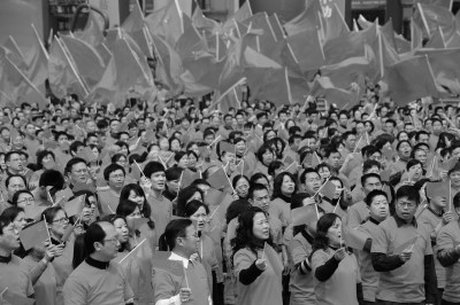
【禁聞】全國一片紅 文革離中國有多遠?
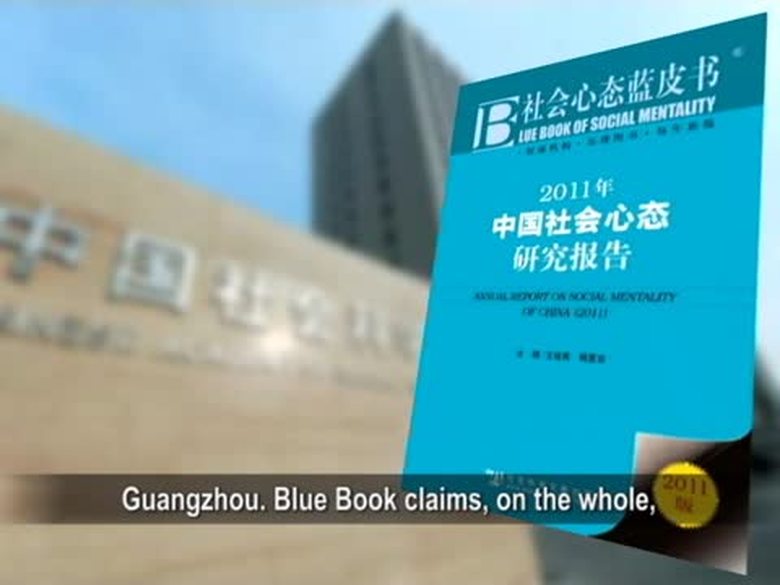
【禁聞】藍皮書稱百姓生活“有滋味”
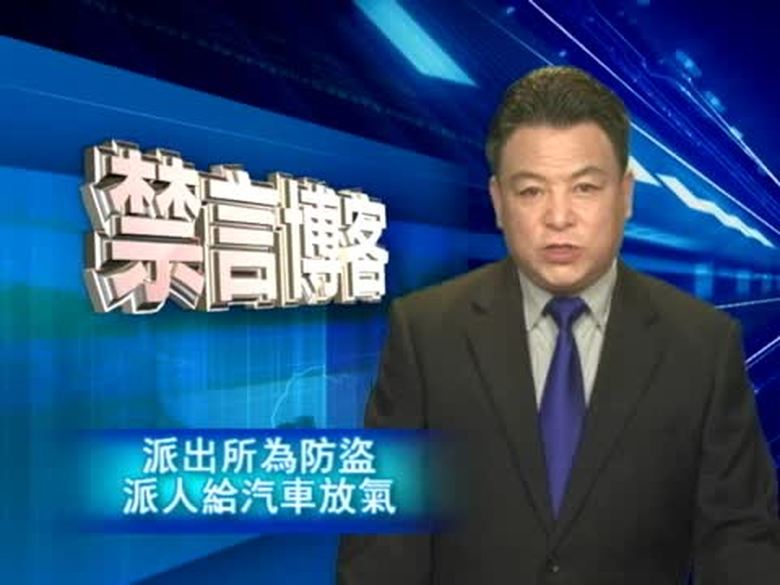
【禁言博客】派出所為防盜派人給汽車放氣
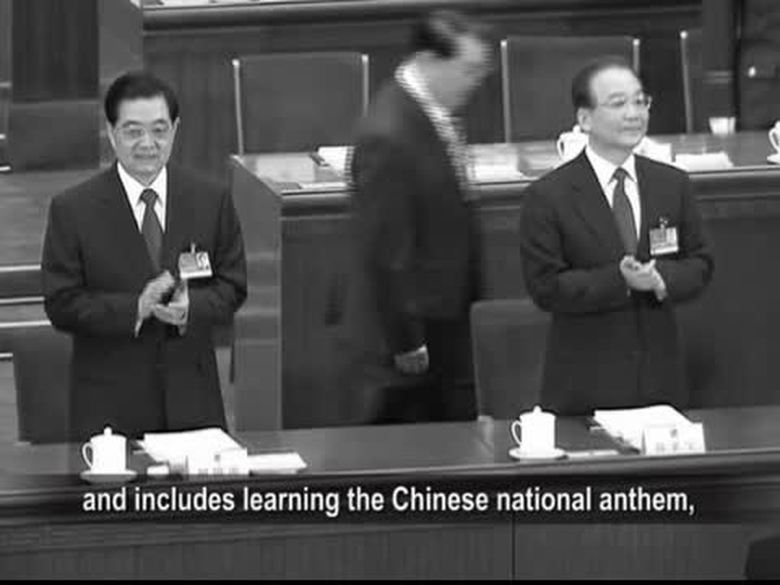
【禁聞】香港吹紅風 “國民教育”被斥洗腦

【禁聞】拉登死後 國際反恐的目標是誰?
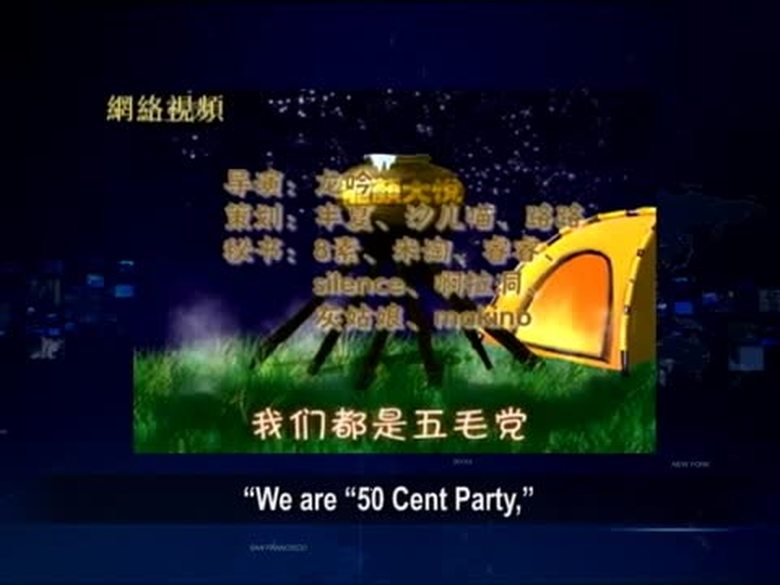
【禁聞】民眾量身定做 五毛黨之歌

【禁聞】中共「國母」宋祖英臺北唱紅歌
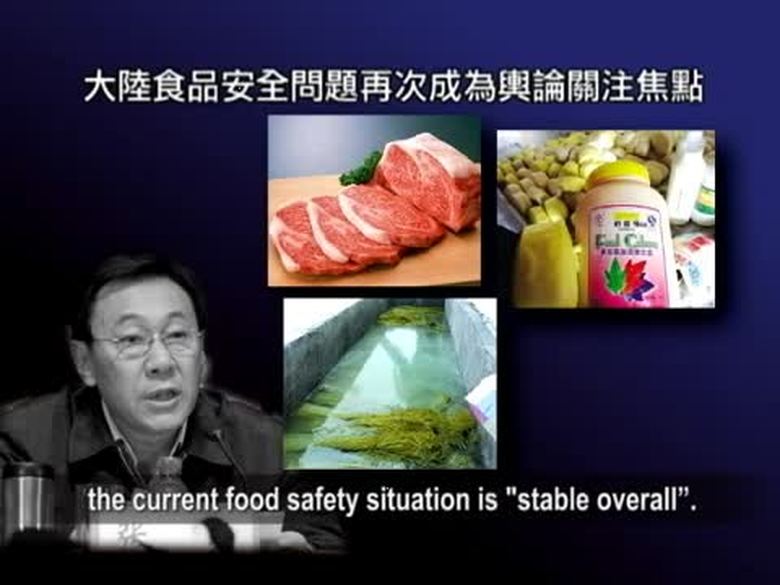
【禁聞】媒體被令造“太平紅海”

【禁聞】中共保密法成陷阱 韓戰學者受關注
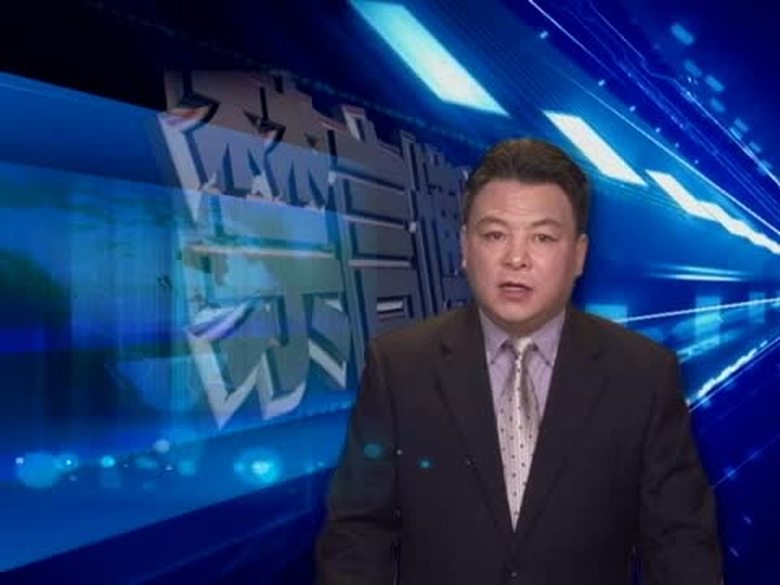
【禁言博客】墓地有期限 陰間也會搞“強拆”
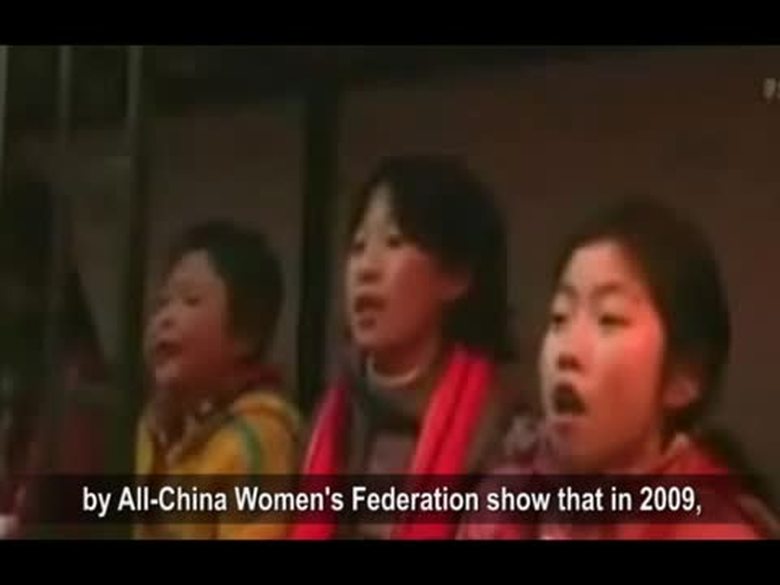
【禁聞】六千萬留守兒童的未來在哪裏?
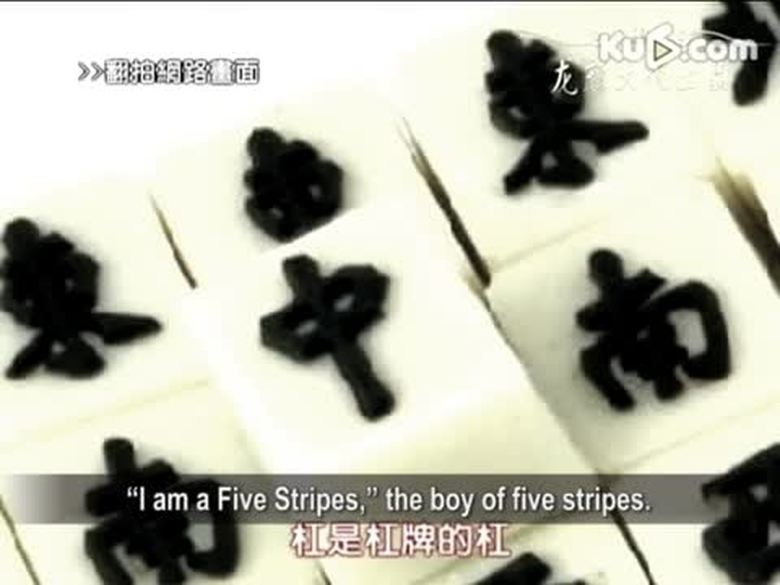
【禁聞】“龍顏大悅”新曲 惡搞“五道槓”
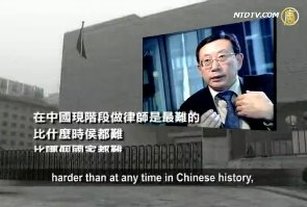
【禁聞】《紐時》社論剛發 律師現身說法

【禁聞】官員享受特供菜 百姓憂心盤中餐
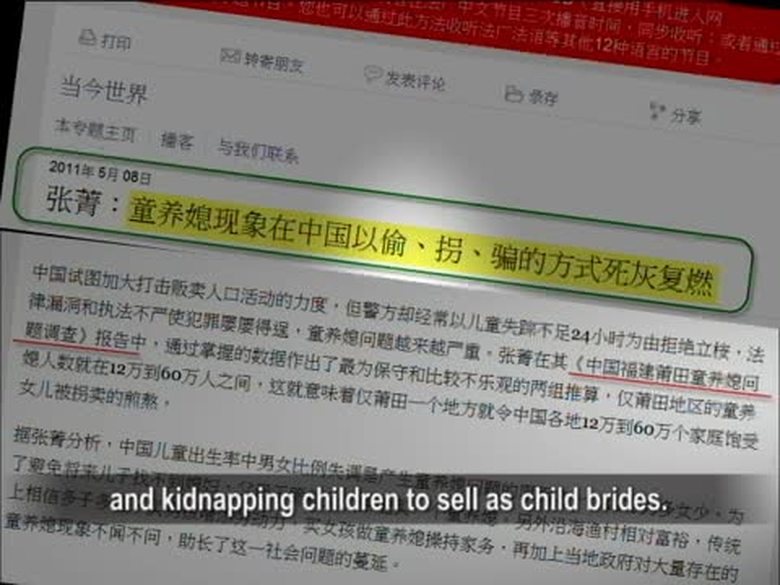
【禁聞】童養媳復燃 計生官員搶嬰外銷








